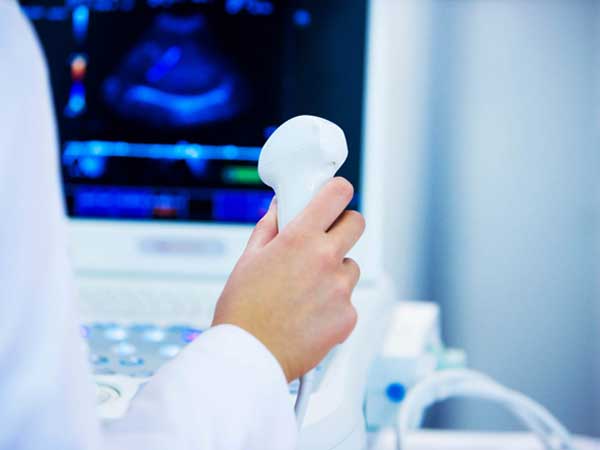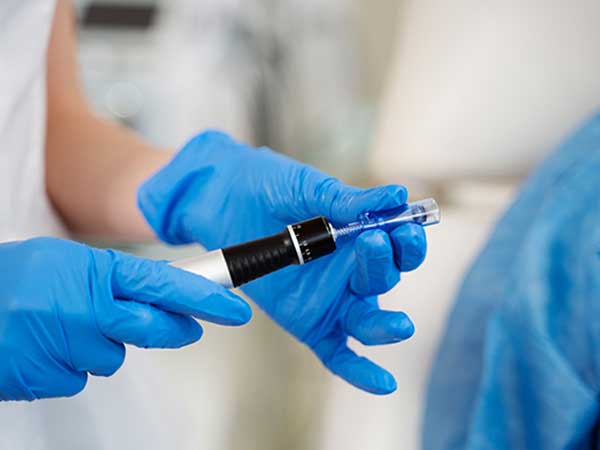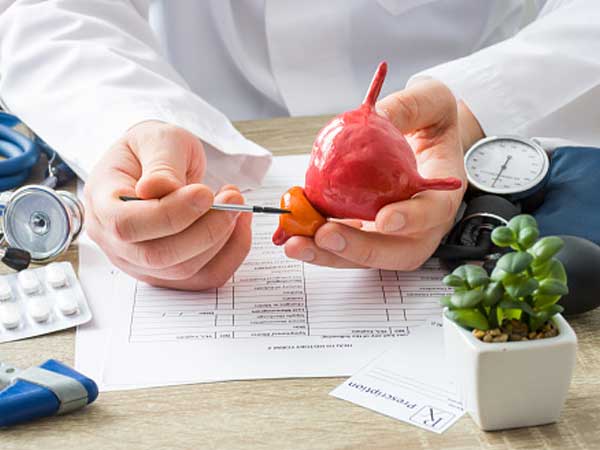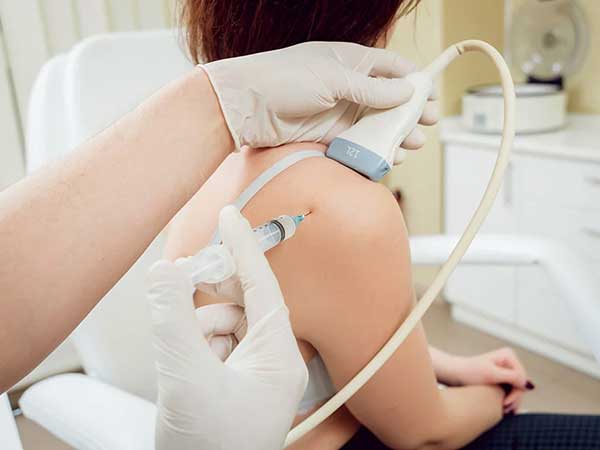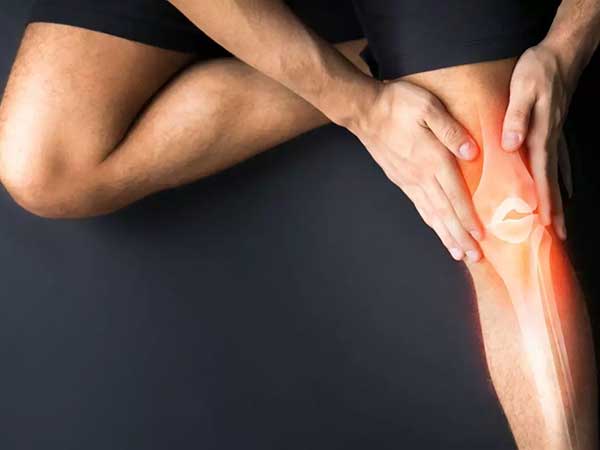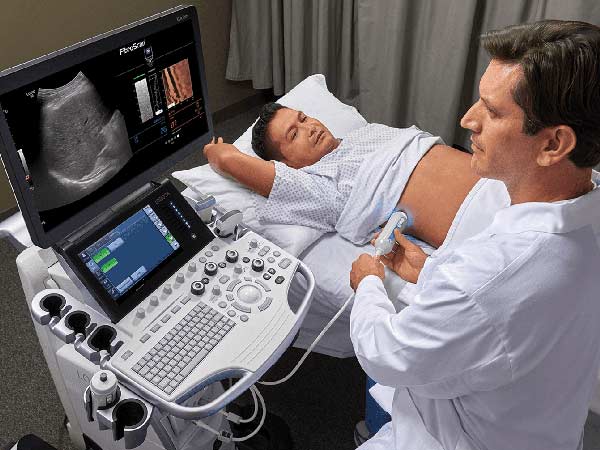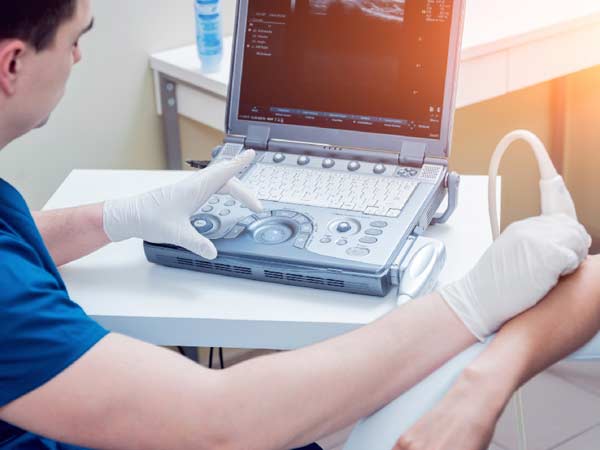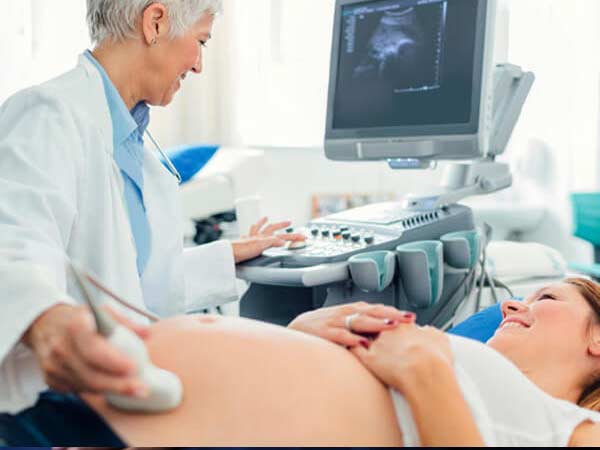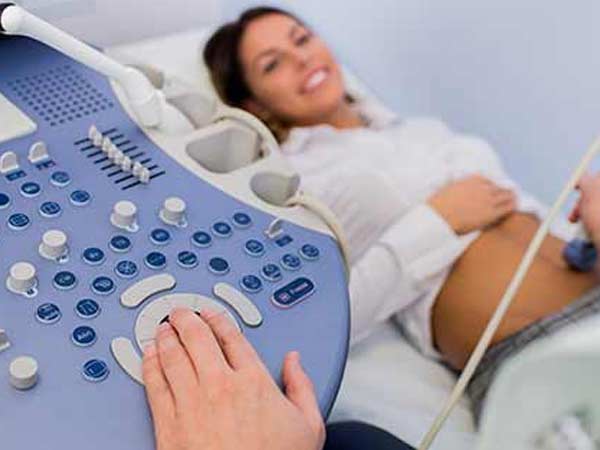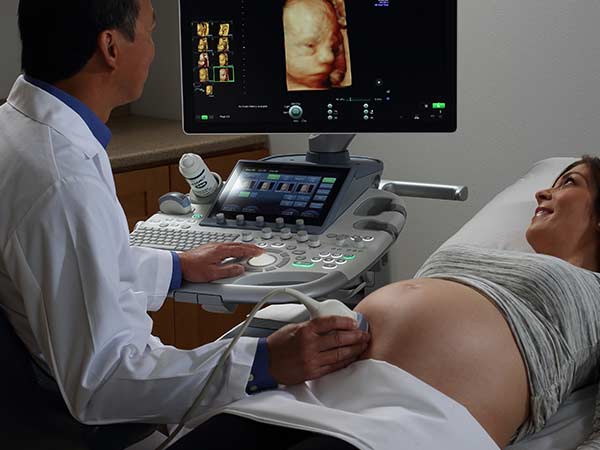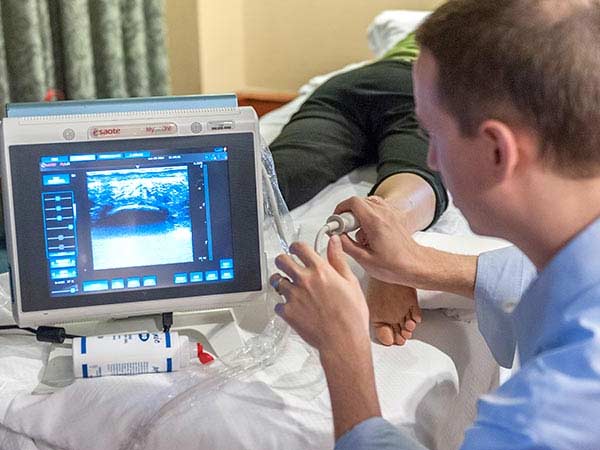There are several types of ultrasound and, when the exam is performed with Doppler, it is possible to evaluate the circulation of blood and the body’s blood flow in the area being scanned. This type of exam serves to investigate abnormalities in blood vessels including both arteries & veins.
Learn more about Doppler ultrasound, indications and applications.
What is Doppler Ultrasound?
Doppler ultrasound or Color Doppler ultrasound, is very similar to common ultrasound: sound waves emitted from the ultrasound machine probe are directed towards the body (area of interest eg. Abdomen). When using Doppler to investigate blood flow in the body, the returning backscattered echoes from blood are detected by the transducer, which generate images in real-time and can be monitored by the ultrasonologist. By allowing the visualization of these moving images, the Doppler effect is able to assess direction, speed (velocity) & volume of blood flow in specific blood vessels supplying & draining areas and organs of the body.
Advantages of Doppler
- The method is painless, practical and safe.
Unlike other types of radiological tests to assess blood vessels (eg. CT angiography & Catheter angiography),
– it does not use radiation
– Can be compact & portable for being accessible to critically ill patient
– Has no adverse effects (eg. Contrast reactions & damage due to radiation exposure).
– Unlike MRI, doppler doesnot have issues of clasutrophobia (fear of closed space I.e.MRI gantry).
Indications & applications of Doppler ultrasound
(from head to toe)
Carotid doppler:

To estimate the risk of cerebrovascular accident (CVA), as well as the sequelae resulting from it
Upper limb arterial & venous doppler

For upper limb swelling: to assess for venous thrombosis

Arterial doppler: in case of suspected reduced arterial circulation
Doppler for arteriovenous (AV) fistula

Useful both prior to creation of AV fistula & in case of malfunction of exisiting fistula
Abdominal & Portocaval doppler
Renal doppler
For workup of hypertension : to look for renal artery stenosis (narrowing) as possible cause

Transplant renal doppler
- For routine post operative surviellance after transplant
- For assessment of vascular causes (blockage/thrombosis) in case of abnormal transplant renal function

Pregnancy doppler
Lower Limb arterial doppler


For evaluation of blackening of toes/non healing ulcer/severe pain on walking (suspected compromised arterial blood)
Lower Limb venous doppler

for evaluation of lower limb swelling: suspected clots in deep veins

Venous doppler for varicose veins

Varicose veins can cause lot of troubling skin changes, pain on standing, non healing ulcers resulting in significant morbidity

Doppler for varicose veins to be done in standing/sitting position to assess for effect of gravity on the incompetent valves at important junctions of superficial & deep veins
Doppler for lumps & bumps
To assess for internal vascularity of superficially seen/felt swellings & deep seated lesions


